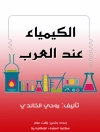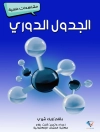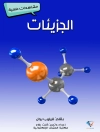This revised, updated and expanded new edition presents an overview of biomimetics and biologically inspired structured surfaces. It deals with various examples of biomimetics which include surfaces with roughness-induced superomniphobicity, self-cleaning, antifouling, and controlled adhesion. The focus in the book is on the Lotus Effect, Salvinia Effect, Rose Petal Effect, Oleophobic/philic Surfaces, Shark Skin Effect, and Gecko Adhesion. This new edition also contains new chapters on the butterfly wing effect, bio- and inorganic fouling and structure and Properties of Nacre and structural coloration.
Tabela de Conteúdo
Introduction.- Roughness-Induced Superomniphobic Surfaces: Lessons from Nature.- Modeling of Contact Angle for a Liquid in Contact with a Rough Surface.- Lotus Effect Surfaces in Nature.- Fabrication Techniques used for Structures with Superhydrophobicity, Self-Cleaning, Low Adhesion/Low Drag with Antifouling Properties.- Fabrication and Characterization of Micro-, Nano- and Hierarchical Structured Surfaces.- Fabrication and Characterization of Micropatterned Structures Inspired by Salvinia Molesta.- Characterization of Rose Petals and Fabrication and Characterization of Superhydrophobic Surfaces with High and Low Adhesion.- Modeling, Fabrication and Characterization of Oleophobic/philic Surfaces.- Shark-Skin Surface for Fluid-Drag Reduction in Turbulent Flow.- Gecko Adhesion.- Outlook.
Sobre o autor
Dr. Bharat Bhushan is an Ohio Eminent Scholar and The Howard D. Winbigler Professor in the College of Engineering, and the Director of the Nanoprobe Laboratory for Bio- & Nanotechnology and Biomimetics (NLB2) and affiliated faculty in John Glenn College of Public Affairs at the Ohio State University, Columbus, Ohio. In 2013-14, he served as an ASME/AAAS Science & Technology Policy Fellow, House Committee on Science, Space & Technology, United States Congress, Washington, DC. He holds two M.S., a Ph.D. in mechanical engineering/mechanics, an MBA, and two honorary and two semi-honorary doctorates. His research interests include fundamental studies with a focus on scanning probe techniques in the interdisciplinary areas of bio/nanotribology, bio/nanomechanics and bio/nanomaterials characterization and applications to bio/nanotechnology, and biomimetics. He has authored 8 scientific books, 90+ handbook chapters, 800+ scientific papers (h index–76+; ISI Highly Cited Researcher in Materials Science since 2007 and in Biology and Biochemistry since 2013; ISI Top 5% Cited Authors for Journals in Chemistry since 2011), and 60+ scientific reports. He has also edited 50+ books and holds 20 U.S. and foreign patents. He is co-editor of Springer Nano Science and Technology Series and Microsystem Technologies, and member of editorial board of PNAS. He has organized various international conferences and workshops. He is the recipient of numerous prestigious awards and international fellowships including the Alexander von Humboldt Research Prize for Senior Scientists, Max Planck Foundation Research Award for Outstanding Foreign Scientists, Fulbright Senior Scholar Award, Life Achievement Tribology Award, and Institution of Chemical Engineers (UK) Global Award. His research was listed as the top ten science stories of 2015. He is a member of various professional societies, including the International Academy of Engineering (Russia). He has previously worked for various research labs including IBM Almaden Research Center, San Jose, CA. He has held visiting professorship at University of California at Berkeley, University of Cambridge, UK, Technical University Vienna, Austria, University of Paris, Orsay, ETH Zurich, EPFL Lausanne, Univ. of Southampton, UK, Univ. of Kragujevac, Serbia, Tsinghua Univ., China, Harbin Inst., China, and KFUPM, Saudi Arabia.












